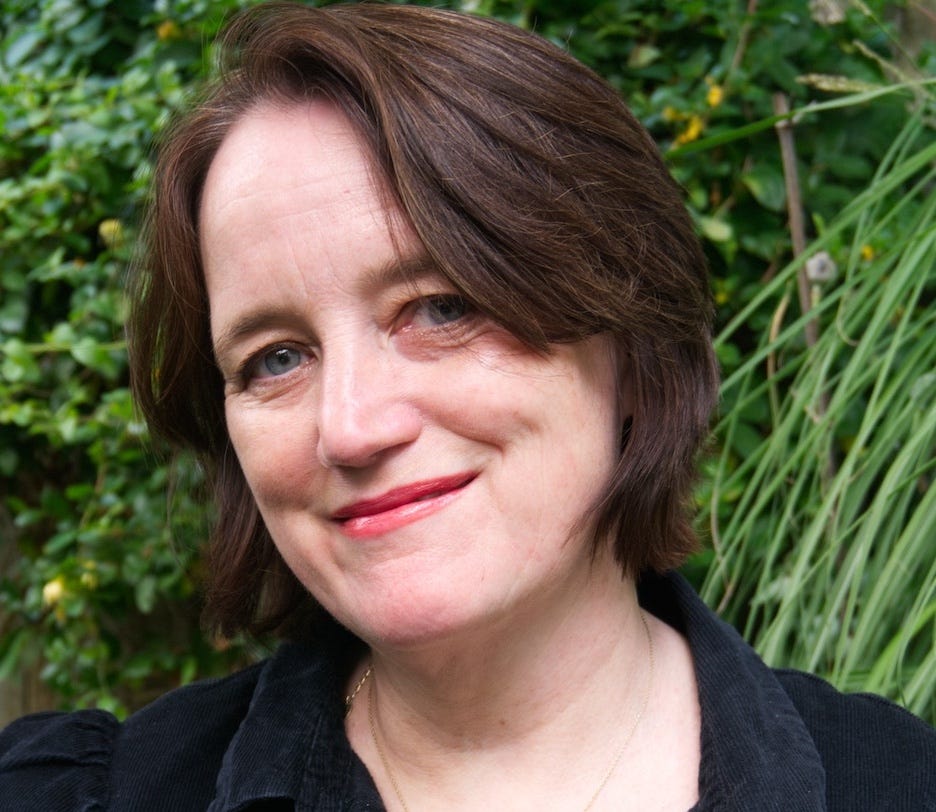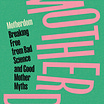Birth trauma: How maternity care is failing women
Plus: The damaging myth of the 'perfect mother' + The Lead in conversation: "Everyone in society has a part to play in raising children"
Maternity care is increasingly unsafe. As well as the risk of physical trauma, mothers are being belittled, ignored and pressured at every turn. Alex Bollen explores how women are being set up to feel like failures…
It has been almost two decades since I had my first baby, but nothing has changed. Birth continues to be a damaging experience for women, leaving physical injuries and emotional scars that can last a lifetime.
If anything, maternity care has got worse. The amount the NHS in England pays out in compensation for poor maternity care has rocketed from £272 million in 2006/7 to £1.14 billion in 2023/4. This accounts for 41% of the NHS’ compensation bill, money that could have been spent on healthcare instead of payouts for needless deaths and injuries. The NHS in Scotland and Wales doesn’t publish compensation figures, so we don’t know how much money is lost to negligent maternity care.
Almost half of maternity units in England are now not safe enough according to the Care Quality Commission. Again, we don’t know what the situation is in Scotland, although inspections finally started this year. In Wales, maternity units are inspected but we don’t have figures for safety ratings.
“I have heard many horror stories over the years from my postnatal groups of women’s pleas for basics like pain relief or a drink of water being ignored.”
Safe maternity care is essential – but safety should be the very bare minimum. Birth trauma can and does happen in seemingly straightforward births. We know that a negative birth experience is the most important birth-related predicator for developing trauma or experiencing symptoms of birth trauma, such as flashbacks or emotional numbing.
Competing visions of an ‘ideal birth’
Women are being set up to fail from the moment they start to think about a birth plan.
There are two competing visions of birth that put women and birthing people at risk of criticism and mistreatment whatever happens. One vision is that birth is a natural physiological process which most women are capable of. The other is that birth is a medical process where risks must be carefully controlled.
In the first, women can find themselves denied medical options or information because they ‘should’ have a vaginal birth. In the second, women may be forced to have interventions they don’t want. What is known as the ‘dead baby card’ can be very effective in getting women to agree to something.
There’s a huge amount of moralising associated with these two visions of birth. This fuels poor treatment – such as being coerced, scolded, belittled or ignored.
Women who want a vaginal birth without interventions (especially at home) are accused of being self-indulgent and putting their baby at risk. Women who want pain relief or caesareans are portrayed as selfish and their births deemed ‘unnatural’. In the UK, this latter current of moralising has long been stronger. The Morecombe Bay Investigation in 2015 and Ockenden Review in 2022 both concluded that the pursuit of normal childbirth (i.e. vaginal birth without interventions) ‘at any cost’ contributed to the unnecessary deaths and injuries of many mothers and babies.
Women and birthing people in the UK are also set up to fail by a healthcare system which has enthusiastically promoted ‘normal’ birth but is not properly resourced to support this. Being left alone for long periods of time because of understaffing, meeting your midwife for the first time while in labour, and hospital practices such as routine vaginal examinations, are among the many factors which can hamper the physiological progress of birth.
Caesarean births have become more common over the past decade. We have to ask how well the NHS is preparing women for this outcome, especially now that 42% of births in England are by C-section. Anecdotally, the possibility that birth can result in an emergency caesarean can be glossed over. The same is true of the likelihood of injuries from vaginal births and breastfeeding difficulties, part of a pattern of playing down potential problems in the hope of encouraging women down a particular path.
We must also question how well women are being cared for after a caesarean or experiencing birth injuries. Postnatal wards can be pretty awful places; noisy, hot and understaffed. I have heard many horror stories over the years from my postnatal groups of women’s pleas for basics like pain relief or a drink of water being ignored.
No one is listening
Not being listened to makes birth a damaging experience. Last year’s report by the All-Party Parliamentary Group on Birth Trauma was even titled ‘Listen to Mums.’ But this just isn’t happening. The consequences can be disastrous.
33-year-old Carly Hardwidge from Chippenham repeatedly told health professionals she was experiencing pain, contractions, blood-stained discharge, and that her baby wasn’t moving. She was ignored and this led to what Parliamentary and Health Service Ombudsman has described as “the tragic avoidable death of a baby girl”.
“Options and events should be explained in a clear and honest way, and women shouldn’t be railroaded down a medical or a physiological path. There isn’t a ‘right’ way to birth.”
The current maternity system is also letting down staff, who are leaving the NHS in droves. The Care Quality Commission has said that “chronic issues around recruitment and retention” is affecting quality of care. I watched a friend work her socks off to qualify as a midwife and then leave the profession because it no longer felt safe to practice.
But the problems in maternity care run deeper than staffing and resources. In both the US and the UK, despite very different healthcare systems, Black women are more likely to die as a result of childbirth than white women. Birthrights’ inquiry into racial injustice in UK maternity care highlighted how stereotypical views shape care. For instance, beliefs that Black bodies can endure more pain coexisting with contradictory views about Black and Brown bodies being defective result in more surveillance but less actual care.
We need systemic change. Women and birthing people must be listened to, understood as individuals, and treated with respect. Options and events should be explained in a clear and honest way, and women shouldn’t be railroaded down a medical or a physiological path. There isn’t a ‘right’ way to birth. If women are in pain, injured or traumatised, they should receive speedy treatment.
All women and birthing people deserve to have positive birth experiences, whatever sort of birth they have.
I felt like I had been run over by a bus after my first birth but my second was brilliant. I was on such a high afterwards and it made such a difference to how I felt. Let’s stop telling women that a healthy baby is all that matters. They matter too.
For support and information visit: www.birthtraumaassociation.org or www.birthrights.org.uk
About the author: Alex Bollen is a researcher and author of Motherdom: Breaking Free from Bad Science and Good Mother Myths.
Paid subscriber features
Today we are offering two additional features only available for paid subscribers.
We have an extract of Alex Bollen’s groundbreaking and thoroughly readable new book ‘Motherhood’, as well as an exclusive audio chat between Alex and our senior editor Natalie – discussing everything from the pressures of new motherhood to the role of the state in parental support. Upgrade to paid for access.
How to break free from the myth of the 'perfect mother'
Good Mother myths are an assortment of narratives, ideologies and stereotypes. These myths are powerful and supple, with the ability to shape-shift in different times and contexts. Good Mother myths can be broad and amorphous (Good Mothers are willing to make any sac…
"Everyone in society has a part to play in raising children"
From the pressure to 'have it all', to the idea that there is a ‘right’ way to give birth, pervasive myths about how to be a good mother are setting women up to fail at every turn.
At The Lead we champion the rights and safety of mothers and pregnant people. Natalie Morris wrote about the Birth Trauma Inquiry shortly before the birth of her first child last spring. She has also looked into the racial inequality of IVF success rates in UK clinics. Elsewhere, Jessica Bradley investigated the women in same-sex relationships facing discrimination in maternity care. Ammaarah Z looked into the underreported world of Black and Brown doulas working to make maternity care safer for people of colour.
If you enjoy receiving The Lead then consider becoming a paid subscriber to access additional, exclusive, content and support our mission to bring your insights and perspectives beyond the mainstream headlines on people, policy and place.
Ed, Zoe, Luke, Sophie, Natalie and The Lead team









It's brilliant to see this in writing. I've had three births, and the first was highly traumatic with damage to me and (relatively short term) my baby. I was listened to by two of the ten people in the room and that made a big difference, but the next 6 days in hospital no-one was listening, everyone was blaming me and there was a culture of mum is stupid/bad and the only person that matters is the baby even if the mum is being thwarted at every turn. It was absolutely awful. During the birth I was not allowed the window open despite the lack of air and I had to lie down despite wanting to sit up. I think broadly I was at one of the better centres but it fell badly in so many ways and no-one ever offered any kind of follow up or chance to feed back and improve things.
Thank you for writing this. I was one of the women who had a c-section and then left without painkillers. I had previous birth trauma from 18 years earlier and had plans put in place but these weren't used on the ward. I never want to be in hospital again. I only got painkillers as a result of me crying but all the other women on the ward were left. The csection was okay (as okay as a csection can be) but the aftercare ruined all my memories of it